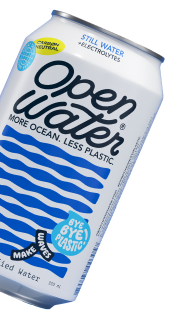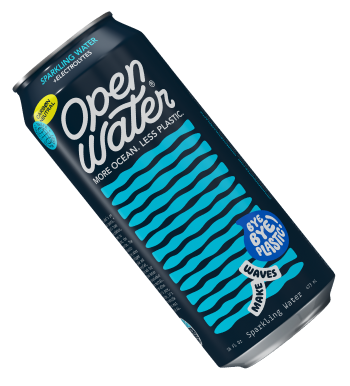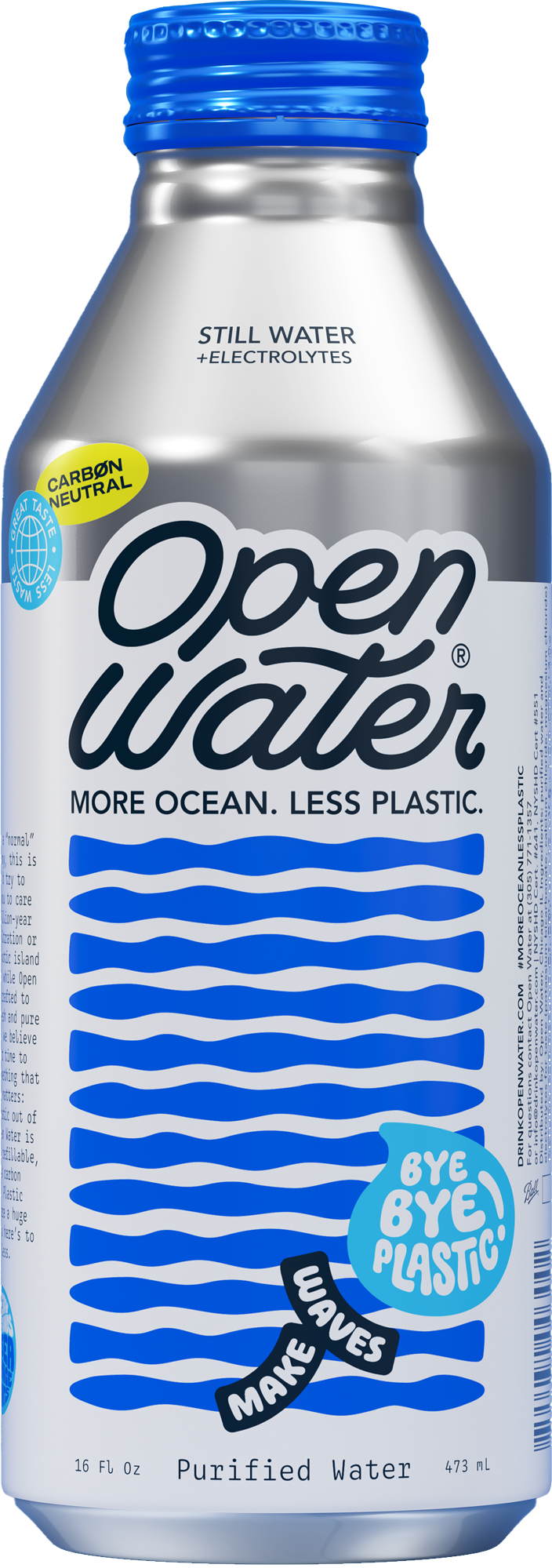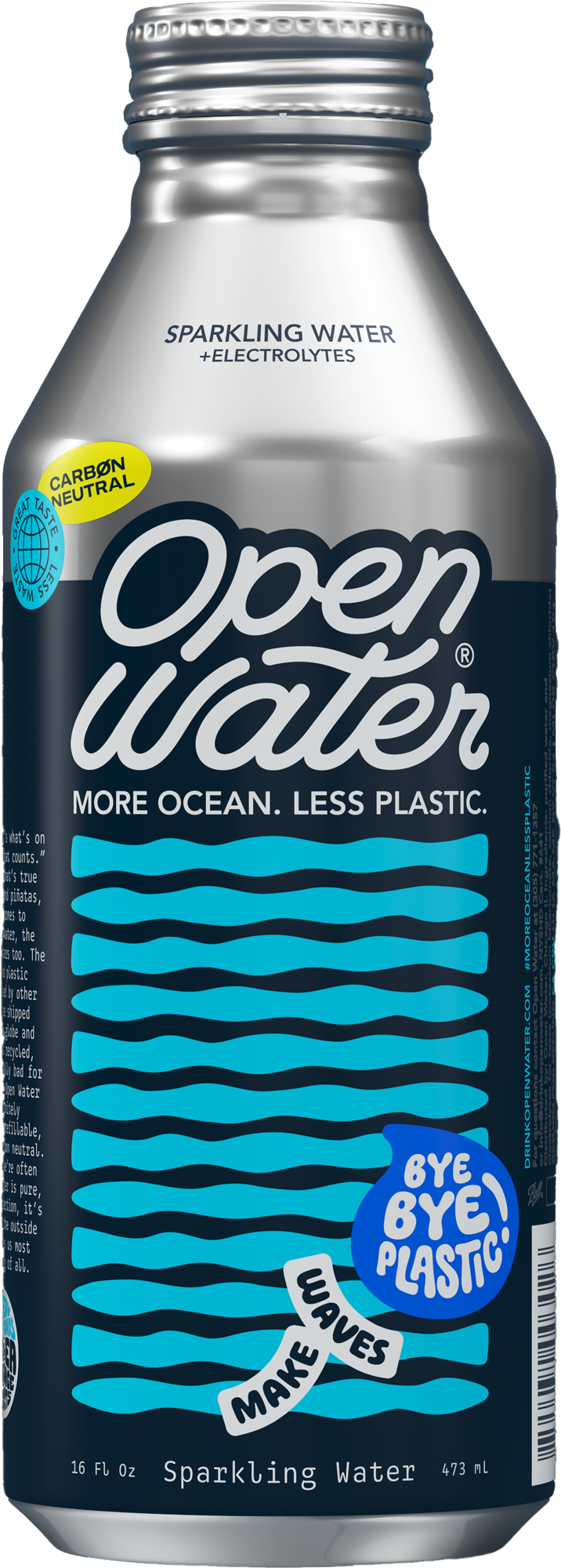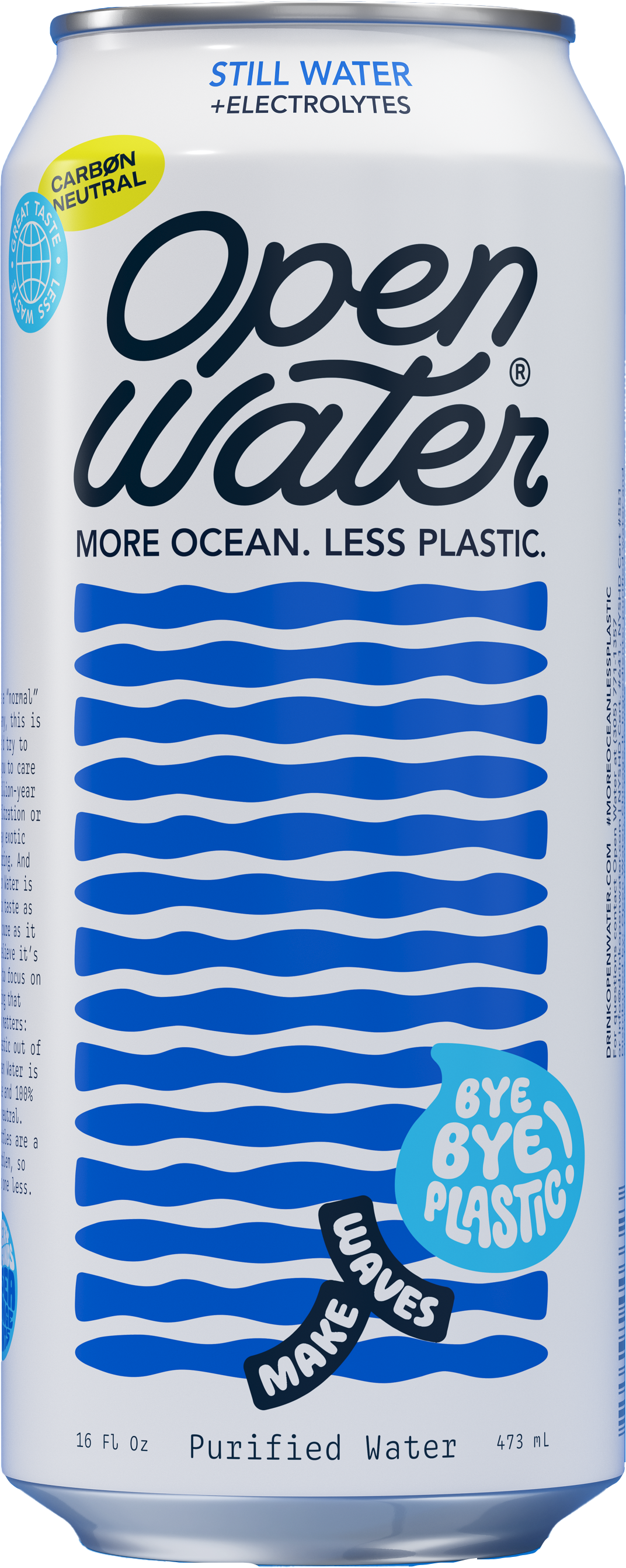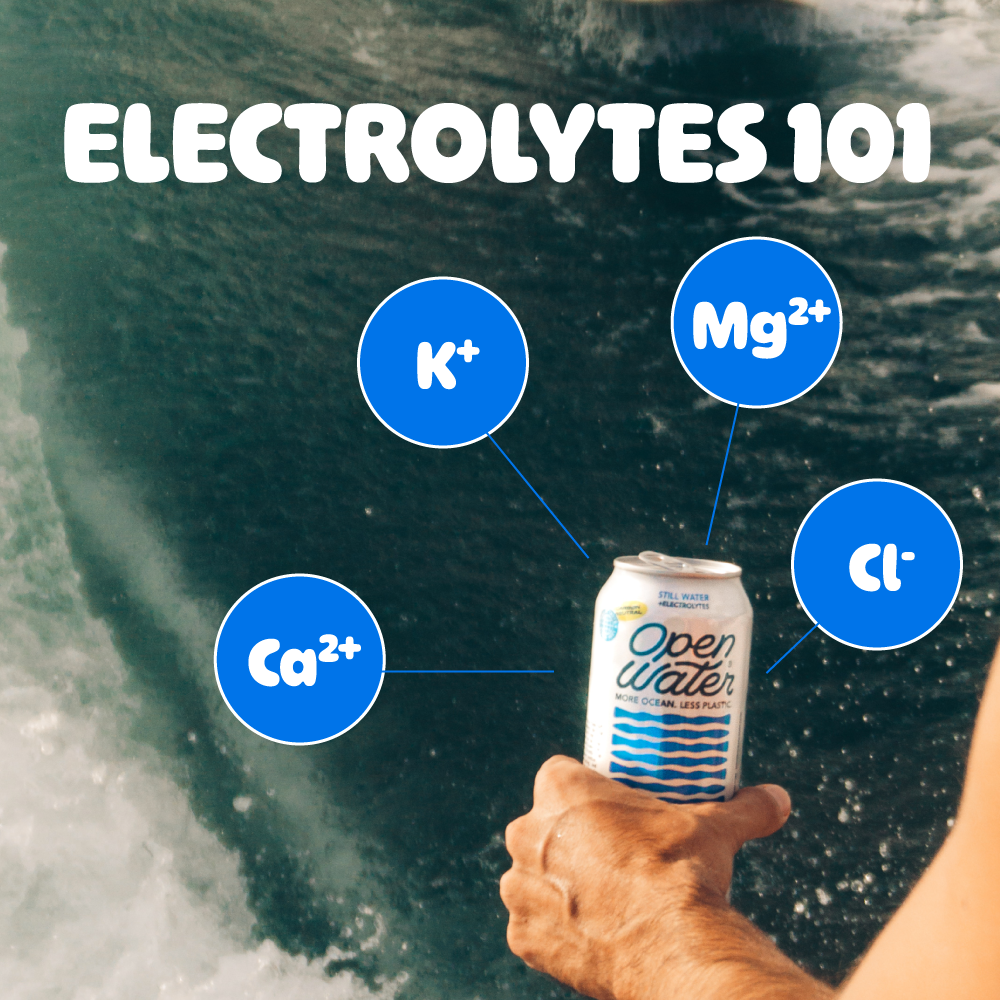In the world of health, fitness,and daily well-being, one term that frequently comes up is "electrolytes." Whether it's in sports drinks, energy bars, or hydration supplements, electrolytes are everywhere these days. But what exactly are they, and why are they important for your body? Open Water has you covered with our guide to everything electrolytes. We'll explore the science behind electrolytes, why electrolytes are essential for your health, and the best sources of electrolytes to keep your body hydrated and healthy.
What Are Electrolytes?
Great first question! Electrolytes are minerals that carry an electrical charge when dissolved in water (science). These charged particles (called ions) play a crucial role in maintaining various bodily functions (more science). The most common electrolytes include:
- Sodium
- Potassium
- Chloride
- Magnesium
- Calcium
- Phosphate
These minerals help regulate essential processes like fluid balance, muscle function, nerve signaling, and pH levels in your body. Without adequate electrolytes, your body can't function optimally, which can lead to dehydration, muscle cramps, and other health issues.
Why Are Electrolytes Good for You?
Only a bit more science, we promise. Electrolytes are essential for many key bodily functions, making them a great addition to your overall health. Some of the beneficial things they do for us:
1. Maintaining Fluid Balance
One of the primary roles of electrolytes is to help regulate the balance of fluids in your body. Sodium and potassium, for instance, are crucial for maintaining hydration levels inside and outside your cells. Proper fluid balance is necessary to prevent dehydration, which can affect everything from your energy levels to your body's ability to cool itself.
2. Supporting Muscle Function
Electrolytes are key players in muscle contraction and relaxation. Potassium, calcium, and sodium all contribute to this process. When electrolyte levels are too low, it can lead to muscle weakness or cramps. This is especially common after intense physical activity or sweating, which depletes your electrolyte levels.
3. Promoting Nerve Function
Electrolytes like sodium and potassium are vital for the transmission of nerve impulses. These electrical signals are responsible for controlling everything from your heartbeat to your reflexes. A deficiency in electrolytes can interfere with nerve communication, leading to symptoms like confusion, dizziness, or even heart arrhythmias.
4. Balancing pH Levels
Electrolytes help to regulate the acidity (pH) of your blood, keeping it within a narrow range. This balance is essential for various enzymatic reactions and overall body function. For instance, calcium and phosphate work together to keep bones strong and maintain proper pH levels.
5. Enhancing Exercise Performance
If you’re physically active, maintaining proper electrolyte balance is crucial for optimal performance. Electrolyte-rich fluids can help you avoid fatigue, muscle cramps, and dehydration during intense workouts, allowing you to push harder and recover faster.
What Are the Most Common Sources of Electrolytes?
Luckily, you don’t have to rely on expensive sports drinks or supplements to get your electrolytes. There are many natural sources of electrolytes in the foods we eat and the drinks we consume. Here's a breakdown of some of the best sources:
1. Sodium
Sodium is commonly found in salt, and it's essential for fluid balance and nerve function. Most people get plenty of sodium through processed foods, but adding a pinch of sea salt to meals can also be an effective way to boost sodium intake when needed.
2. Potassium
Potassium is vital for heart function, muscle contraction, and fluid balance. Some excellent potassium-rich foods include:
- Bananas
- Sweet potatoes
- Spinach
- Avocados
- Oranges
3. Calcium
Calcium is important for bone health, nerve function, and muscle contraction. While dairy products are well-known sources of calcium, there are also many plant-based options:
- Leafy green vegetables (such as kale and broccoli)
- Fortified plant-based milks (like almond or soy milk)
- Tofu
4. Magnesium
Magnesium supports muscle function, energy production, and nerve function. You can find magnesium in foods like:
- Almonds
- Spinach
- Beans and lentils
- Whole grains (like quinoa and brown rice)
5. Chloride
Chloride works with sodium to maintain fluid balance and is often found in the same foods. It's commonly present in table salt, sea salt, and seaweed.
Last science lesson! Kosher salt is made up of sodium chloride (NaCl), which is a combination of sodium and chlorine molecules held together by ionic (a type of chemical) bonds.
6. Phosphate
Phosphate plays a role in bone health and energy production. It is abundant in foods such as:
- Meat and poultry
- Fish
- Eggs
- Dairy products
- Nuts and seeds
7. Open Water
We know, we know. Shameless plug time (mainly because our finance team says this should help drive sales). All Open Water products have electrolytes that can potentially be beneficial to overall health. Our proprietary blend of electrolytes consists of Bicarbonate, Calcium, Chloride, Magnesium, and Potassium to help create a balanced pH and give you the best tasting water. Want a higher dose of electrolytes? We recommend pairing our 16oz resealable bottles with a serving of your favorite electrolyte powder.
How Do I Get Enough Electrolytes?
To maintain balanced electrolyte levels, it’s important to consume a well-rounded diet with a variety of nutrient-rich foods. For athletes or those who sweat heavily, replenishing electrolytes after intense exercise is especially important. Drink water with added electrolytes or eat foods rich in electrolytes to restore levels and prevent dehydration or muscle cramps.
Final Thoughts On Electrolytes
Electrolytes are essential minerals that help your body perform a range of important functions. Whether you're looking to improve exercise performance, recover after a workout, or simply maintain overall health, keeping your electrolytes in balance is a win for your body. Click here to stock up on your Open Water favorites with electrolytes.
